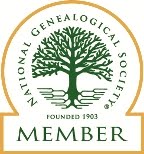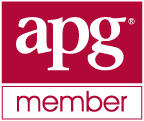 In my last post on GeneaJourneys, I introduced a topic I’ll be covering here over the next few weeks: Building Your Own Personal Genealogy Library.
In my last post on GeneaJourneys, I introduced a topic I’ll be covering here over the next few weeks: Building Your Own Personal Genealogy Library.
Last time I discussed why you’d want your own collection of books and research materials. Summary? To have key resources at your fingertips, and just because it’s fun, darn it! Today I’ll be talking about shopping for a bookshelf basic that, in my opinion, no budding genealogist can afford to be without: “how to” guides or “intro” books.
Whether you pick up one or several, these books will serve as the foundation for any further research you do and may even include some suggestions themselves on further references to consider. One thing you can be sure of though, these beginners’ guides will cover most of the following topics: using the census; vital records; immigration and naturalization; and military research. They may even go further offering guidance on newspaper, cemetery and online research; and using digital databases.
A list of several well-known introductory genealogy books, with links featuring descriptions, prices and reviews, are featured at the end of this post.
These titles and many others can be found in bookstores, libraries and online. The main questions you may have though, are which ones to get and where to get them. Before addressing that though, I offer a little background on how my efforts in self-education in genealogy first began.
My Personal GeneaJourney
Four years ago I didn’t know a great-uncle from a grand-uncle, and didn’t really care until I was struck by the genealogy bug in a very roundabout way. As keeper of the Desmond family photo albums, I took on a project to pass on more than 500 family photos to my seven siblings so we’d all have copies of those cherished images we’d viewed for so many years. During the course of scanning photos, burning disks, and developing an accompanying photo log, I began thinking about the individuals looking back at me from all those old images.
There they were—grandparents, cousins, and so many others whom I’d never met, and who, due to the loss of my own parents at a fairly young age, I never really learned about. Realizing that “they must be buried around here someplace” and with no one to guide me, I made a few calls, filled out some forms, obtained a few death certificates and visited local cemeteries.
The result? Unbounded success! Not only did I find my grandparents’ graves, the passion was ignited and a genealogist was born. From that point on, I was determined to learn all I could about how to research those unknown ancestors. That’s when I knew I needed professional help (of a genealogical nature, that is!) I started visiting libraries and bookstores in the area to see just what was on their shelves to guide genealogy newbies like myself. And that’s exactly where my guidance to you begins in how to start lining your own bookshelves with those “gotta have” titles.
Here are a few suggestions to get started:
How to Shop
Visit libraries—lot’s of ‘em. You’re just window shopping now and the books are free. You’ll soon find out that offerings differ from branch to branch and even from town to town. If your library has a reciprocal lending agreement with neighboring libraries, that’s even better as it widens your choices. You may be able to cruise one library’s digital card catalog and borrow something that looks appealing from another location, or get advice from the reference librarian on the most popular titles in their collection. If something’s been checked out but looks tantalizing, ask if they can put it on hold once it’s returned so you can be the next to check it out.
The key here is this: By reviewing many different titles of the same genre (for example, “getting starteds” and “how to” guides), you’ll know which ones are the most appealing, most readable, and have the most to offer. You’ll also pick up on authors who’ve written multiple books, indicating a broad, and hopefully deep, knowledge of the subject you’re interested in.
Tip here: I often photocopy the book’s cover with title, author and call number, then note the library it came from and any other pertinent comments about the item. Such info comes in handy should I wish to borrow it again or want to buy it for myself later on. That little task has saved me considerable time over the past few years by helping me to quickly re-find favorites.
Before deciding any book is a “must have” for your library though, be sure to note the copyright date. That alone may dictate whether this is a volume you’ll want on your own bookshelf. Let’s face it—some aspects of genealogy haven’t changed in decades (understanding the census; filling out pedigree charts; operating a microfilm reader, etc.) Any general “how to” guide should suffice for those. There are plenty of options available so just look them over, read some reviews, and choose one that appeals. (See a sampling of titles at the end of this post.)
But do keep this in mind: While genealogy may be about the past, the techniques and technology for pursuing the past are changing all the time. Maybe you think that book you spotted on surnames or counties contains just what you’re looking for, but be careful: if it’s 10 years old (and often, even newer than that), it may already be out of date. You may want to get that kind of info online instead through an up-to-date, well-maintained database provider.
One other caution: If you see two versions of the same book online and one is considerably less expensive, it probably means the cheaper one is an old edition. More than likely, you’ll want to pay a little bit extra to get the more current version.
Where to Shop
Once you’ve located a book that you’ve decided is a personal “keeper” for you, it’s time to start power shopping. “Brick and mortar” stores like Barnes & Noble, vendors at local genealogy conferences, and online providers like Amazon.com and are all good places to start. But don’t overlook used bookstores or even buying secondhand books online. Building your personal genealogy collection will be much more affordable if you do.
My local used book store, The Frugal Muse, will even order current titles at 25% off and give you credit for your used books to offset the cost of your purchase. My greatest coup with that vendor? Bringing home a brand new copy of the latest edition of “The Source: A Guidebook to American Genealogy” by Loretto Dennis Szucs and Sandra Hargreaves Luebking. After my 25% discount, this $80 genealogy bookshelf staple was all mine for just $21 and two cartons of my old unwanted books—kind of like double couponing on Wednesdays at the local grocery store!
What you see is what you get when buying used books in person. Like it? Buy it. Online purchases can be a little trickier, though. My only parameters for buying online? Books must be listed as in “like new” or “very good” condition and come from a store in my own or a nearby state. (I passed up a bargain from New York shortly after Hurricane Sandy—I just wasn’t too confident on when, or in what condition the book might be, once it actually arrived.) As far as I’m concerned, secondhand books are already a bargain, so I don’t mind paying an extra buck or two for a decent used book that will be making a shorter trip to my mailbox.
Next up in my series on Building Your Own Personal Genealogy Library? Locality guides and yes, even textbooks!
_____________
Listed below, in no particular order, is a non-comprehensive list of “getting started” books and “how to” guides for the budding genealogist. For more titles check your local bookstore or online bookseller:
“The How To Do Everything Genealogy Guide” by George G. Morgan”
“Genealogy 101” by Barbara Renick”
“The Organized Family Historian” by Ann Carter Fleming
“Secrets of Tracing Your Ancestors” by W. Daniel Quillen
“Unpuzzling Your Past” by Emily Ann Croom
“Who Do You Think You Are?” by Megan Smolenyak
“Getting Started in Genealogy Online” by William Dollarhide
“The Everything Online Genealogy Book” by Kimberly Powell
__________
Copyright © 2013 Patricia Desmond Biallas





It sounds as if the genealogy bug came looking for you, Pat — with the 500 old photos and the local cemeteries. Irresistible! I like your idea about visiting several libraries to get a sense of the range and “spread” of genealogy books that are out there and available and current. I guess you can either read them front-to-back or “dip into” them by chapter. I’d like to read the “Everything Online” book first — it goes on my big stack of books to read next. Wish there was more time! Thanks for your help.
I don’t know if genealogy came looking for me or vice versa, Mariann, but I’m having lots of fun pursuing it. I’ve never looked back and, in fact, don’t know when or how I’ll ever tackle all the “research” assignments I’ve given myself. I sure intend to try though, and books like the above help keep me on track.